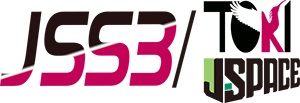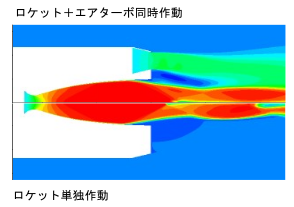Study of high speed fluid dynamics
JAXA Supercomputer System Annual Report February 2023-January 2024
Report Number: R23EU0902
Subject Category: Space and Astronautical Science
- Responsible Representative: Akira Oyama, Professor, Institute of Space and Astronautical Science, JAXA
- Contact Information: oyama.akira@jaxa.jp(oyama.akira@jaxa.jp)
- Members: Sakura Endo, Kento Kaneko, Naruhiko Nimura, Shu Ota, Akira Oyama, Ryutaro Onishi, Ken Sawada, Atsushi Shinozuka, Masayuki Sasaki, Satoshi Sekimoto, Yukito Tsunoda
Abstract
To conduct fundamental research on high-speed fluid dynamics such as aerodynamic design of Mars drones
Reference URL
N/A
Reasons and benefits of using JAXA Supercomputer System
High-fidelity flow simulations such as the large eddy simulations are required to analyze Mars drones.
Achievements of the Year
A CFD analysis was performed to investigate the effect of the center of gravity position on the dynamic instability of the Hayabusa type capsule during subsonic flight (Fig. 1). The results show that the capsule loses dynamic stability as the center of gravity moves rearwards. They also show that the front of the capsule contributes to dynamic stability and the rear part of the capsule contribute to dynamic instability respectively .
Numerical fluid dynamics simulations were also conducted around the coaxial exhaust nozzle of an air-assisted sounding rocket in order to clarify how the interference between multiple jets from the nozzle affects the thrust (Fig. 2). The results showed that the thrust generated by the nozzle was reduced by 1.15% at flight altitudes where the rocket engine is overexpanded due to the interference effect of the jets.
Publications
– Oral Presentations
Sakura Endo, Akira Oyama and Kazuhiko Yamada, ”Numerical Study on Dynamic Instability of Reentry Capsule at Subsonic Speeds,”8-12 January 2024AIAA SCITECH 2024 Forum, https://doi.org/10.2514/6.2024-2866, January 2024.
Usage of JSS
Computational Information
- Process Parallelization Methods: MPI
- Thread Parallelization Methods: Automatic Parallelization
- Number of Processes: 57
- Elapsed Time per Case: 60 Hour(s)
JSS3 Resources Used
Fraction of Usage in Total Resources*1(%): 1.33
Details
Please refer to System Configuration of JSS3 for the system configuration and major specifications of JSS3.
| System Name | CPU Resources Used(Core x Hours) | Fraction of Usage*2(%) |
|---|---|---|
| TOKI-SORA | 31567168.16 | 1.43 |
| TOKI-ST | 1300135.72 | 1.40 |
| TOKI-GP | 17.11 | 0.00 |
| TOKI-XM | 0.00 | 0.00 |
| TOKI-LM | 2137.42 | 0.16 |
| TOKI-TST | 0.00 | 0.00 |
| TOKI-TGP | 0.00 | 0.00 |
| TOKI-TLM | 0.00 | 0.00 |
| File System Name | Storage Assigned(GiB) | Fraction of Usage*2(%) |
|---|---|---|
| /home | 1592.50 | 1.32 |
| /data and /data2 | 159365.00 | 0.98 |
| /ssd | 12550.00 | 1.19 |
| Archiver Name | Storage Used(TiB) | Fraction of Usage*2(%) |
|---|---|---|
| J-SPACE | 0.08 | 0.00 |
*1: Fraction of Usage in Total Resources: Weighted average of three resource types (Computing, File System, and Archiver).
*2: Fraction of Usage:Percentage of usage relative to each resource used in one year.
ISV Software Licenses Used
| ISV Software Licenses Used(Hours) | Fraction of Usage*2(%) | |
|---|---|---|
| ISV Software Licenses(Total) | 1447.78 | 0.65 |
*2: Fraction of Usage:Percentage of usage relative to each resource used in one year.
JAXA Supercomputer System Annual Report February 2023-January 2024




